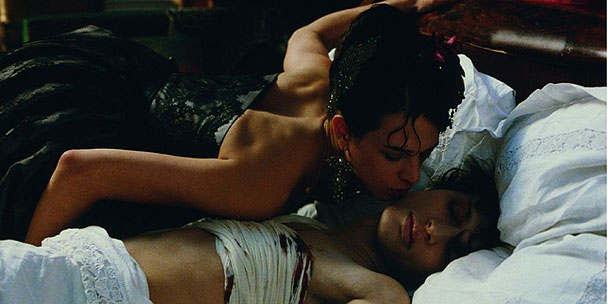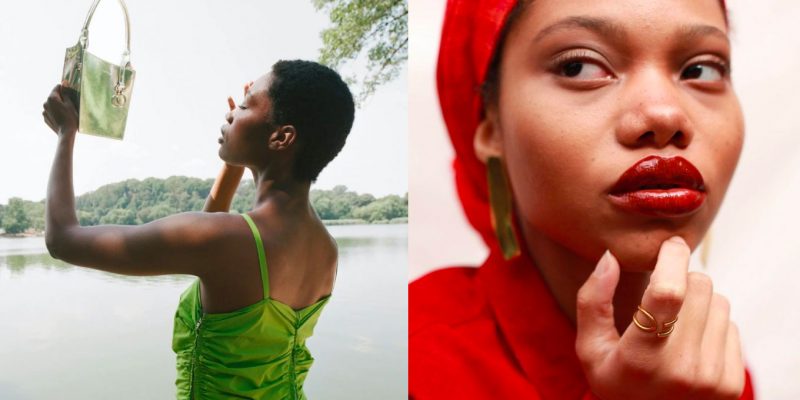Culture
Just deserts
Controversial filmmaker Catherine Breillat will finally have her day when TIFF Cinematheque honors her with a retrospective of her career.
by : Adam Nayman- Jul 5th, 2010

No list of the world’s most provocative filmmakers would be complete without mention of Catherine Breillat, who has for the better part of four decades pushed the boundaries of cinematic representation with regards to female sexuality. A critics’ favorite for her heady, rigorous filmmaking style, she was also briefly a household name in Canada in 2001, when her remarkable drama Fat Girl – a parable of sexual awakening pivoting on the barely suppressed jealousy between two sisters – was banned from exhibition by the Ontario Review Board. It’s a decision that still baffles Breillat a decade later. “I had the impression that censorship was taking its revenge on me for my previous film Romance, which was a cry against censorship.” says the 62-year-old director in an exclusive phone interview from her home in France. “And it was strange because my early films had premiered [in Canada] with no controversy at all.”
All of Breillat’s films will be on display this summer during TIFF Cinematheque’s comprehensive retrospective of her career, which also includes a few titles that the director cites as formative influences (including the famously scandalous Last Tango in Paris). The series begins with a screening of her newest work, Bluebeard, a lushly rendered adaptation of Charles Perrault’s 17th Century fairy tale about a young woman whose curiosity about her husband’s affairs – specifically, the contents of a locked room that she has forbidden to enter – seals her doom.
“The story teaches that women are to love the man who will kill them,” says Breillat. “What I find so stupefying about [the story] is that it is, by its very nature, a tale designed to be read by young girls.” Besides subtly altering the dynamic between the title character (the massive Dominique Thomas) and his young bride (Lola Creton), Breillat has also fore-grounded this question of storytelling. As the film unfolds, we see that two young sisters are actually narrating the tale to each other in the hushed confines of their attic – a device derived her own experiences reading the story as a child with her older sister. “Children like fairy tales because they are frightening,” she says. “My sister would always start crying [when we read the story], and my sense of pride meant that I had to hold back my own tears. At the same time, we know that these stories aren’t real, that we are making believe. In this way, the modern [frame] around the story gives it an entirely different meaning.”
What’s Breillat’s next project? Find out on the next page…
Screen siren: TIFF Cinematheque honours the ever-elusive Lucrecia Martel
Rebel with a cause: Jay Baruchel starts a cinematic revolution

Breillat’s preoccupation with re-contextualizing bedtime perennials has extended into her next project, a version of Sleeping Beauty bereft of wicked queens, enchanted aunts or charming princes. “I’ve changed the age at which the character falls asleep,” she explains. “The story is about the beauty that lies dormant in every little girl, so she falls asleep when she is six years old. At that age, we are afraid of nothing; when she awakens at sixteen, she is totally unprepared for the violence that permeates life. I think that this is the deeper meaning of the tale, and I’ve tried to adapt with it some creativity.”
Catherine Breillat’s Anatomies of Desire
July 22 – August 15 at TIFF Cinematheque Screening and ticket information available at cinemathequeontario.ca.
Read more:
Music makers: Box office stars to rock stars?
Music beat: Toronto’s North by Northeast festival
ELLE Interview Jake Gyllenhaal: His chameleon-like behaviour
Queen bee: Alice in Wonderland‘s Helena Bonham Carter
Newsletter
Join our mailing list for the latest and biggest in fashion trends, beauty, culture and celebrity.
Read Next

Fashion
Are Fashion Brands Getting Greener?
While the fashion industry is making a lot of noise about being more sustainable, a closer look shows that its earth-friendly commitments are often more illusion than reality.
by : Marouchka Franjulien- Apr 19th, 2024

Beauty
What Beauty Packaging Is Actually Sustainable?
We sought out leaders in the field to help us get to the bottom of the blue bin once and for all.
by : Victoria Christie- Apr 19th, 2024

Beauty
Tested and Approved: Your New Hydrating Skincare BFF
This new product has all of your skin’s thirst-quenching needs covered.
by : ELLE Canada- Apr 17th, 2024




